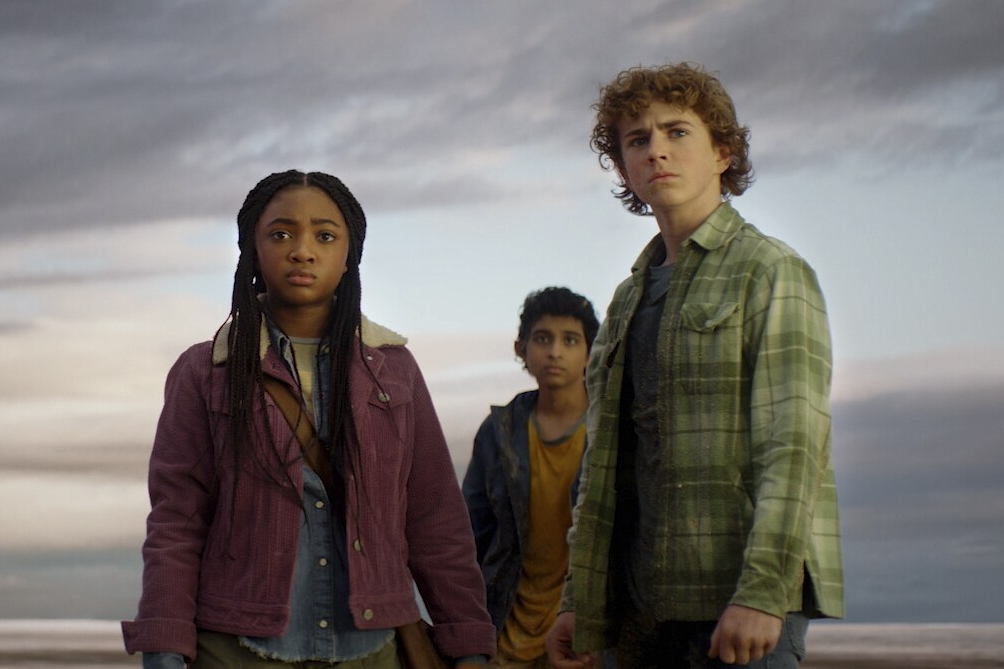
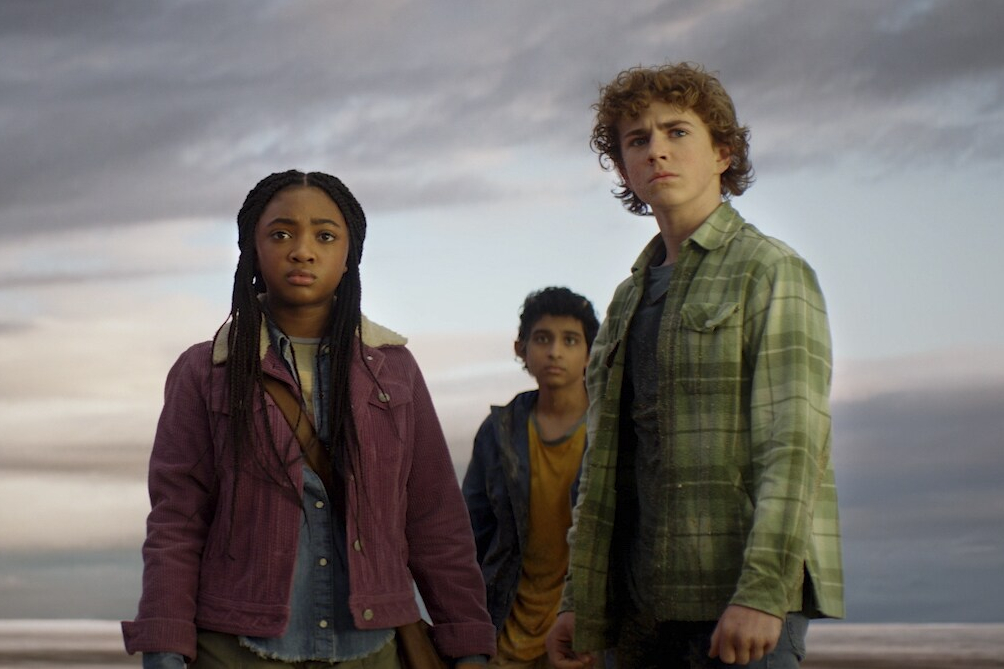
Percy Jackson and the Olympians
“Disney+’s Percy Jackson and the Olympians is the Rick Riordan adaptation that fans have been waiting for.”
Pros
- Walker Scobell’s likable lead performance
- A charming, well-cast lineup of supporting performers
- An increasingly engaging plot and propulsive pace
Cons
- Unevenly paced first two episodes
- Dodgy VFX and CGI throughout
- Several one-note characters and rushed characterizations
Adapting author Rick Riordan’s Percy Jackson novels correctly has always been a matter of managing tone. Riordan’s initial Percy Jackson books may have been one of the many YA fantasy properties that cropped up in the mid-2000s and enjoyed great success in the wake of the Harry Potter series’ popularity, but they’ve always boasted a tone and sensibility all their own. The series, which takes place in an alternate reality where the creatures, gods, monsters, and heroes of Greek mythology walk secretly among the world’s unsuspecting humans, is more knowingly goofy than many of its fellow YA fantasy titles. Its world is one where the gods of Mount Olympus live above the Empire State Building, Hades’ Underworld is fittingly located beneath the streets of Los Angeles, and monsters like Medusa own garden gnome shops.
In 2010 and 2013, Hollywood attempted to bring the Percy Jackson novels to life with a pair of Logan Lerman-led blockbusters that missed the mark with casual viewers and die-hard fans alike. While the films themselves didn’t shy away from their source material’s decidedly singular tone, they did create conflicts between heroes that didn’t exist in Riordan’s original novels, cut entire characters and subplots, and — most blasphemously of all — aged up their core characters. These decisions were seemingly made to try to make the world of Percy Jackson seem as “cool” as possible. But “cool” has never really been what Riordan is going for.
The Disney+ series Percy Jackson and the Olympians, Hollywood’s second live-action adaptation of Riordan’s original novels, understands this. The series’ first four episodes, which were the only installments provided to critics early, simultaneously lean all the way into the zaniest elements of their fictional world and earnestly believe in the merits of the story they’re trying to tell. They are not perfect, by any means. Some of the VFX and CGI featured throughout the episodes are laughably bad, and the show’s heavy use of Volume-created digital environments is frequently distracting. But there’s a lot of heart in Percy Jackson and the Olympians and, as his readers will attest, heart has always been the not-so-secret key ingredient of Riordan’s work.
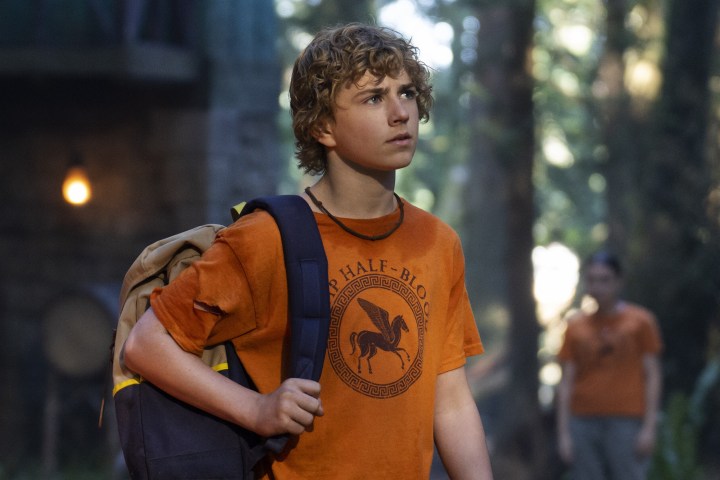
Percy Jackson picks up with its eponymous hero (played by The Adam Project’s Walker Scobell), a self-professed “troubled kid,” during a school field trip that goes awry after one of his teachers, Ms. Dodds (Megan Mullally), transforms into a hideous, winged creature and attacks him. While Percy’s best friend, Grover Underwood (a charming Aryan Simhadri), and his wheelchair-bound teacher, Mr. Brunner (a magnificently dignified Glynn Turman), react to Percy’s claims with confusion and disbelief, his mother, Sally (Virginia Kull), explains that Percy’s absentee father wasn’t just any ordinary man, but a Greek god of old. Percy doesn’t initially believe his mother’s assertion that he is a “demigod,” but when he, Sally, and Grover, who reveals himself to be Percy’s satyr protector, wind up on the receiving end of a minotaur attack, there isn’t much left for him to dispute.
From there, the Disney+ show follows Percy as he’s relocated to Camp Half-Blood, a hidden retreat where all of the world’s demigod children are welcomed and kept safe from the monsters that are drawn to them. There, Mr. Brunner reveals himself to be a centaur named Chiron, and Percy becomes quickly acquainted with several of his fellow demigods, including Annabeth Chase (Leah Sava Jeffries), an ambitious daughter of the Greek goddess, Athena; Luke Castellan (Charlie Bushnell), a wise, welcoming son of the messenger god Hermes (Lin-Manuel Miranda); and Clarisse La Rue (Dior Goodjohn), a hot-headed daughter of Ares (Adam Copeland), the Greek god of war.
Percy’s time at Camp Half-Blood is cut short when he is claimed by his father, Poseidon (Toby Stephens), the Greek god of the sea. Percy subsequently learns that he is a “forbidden child,” an offspring of one of the Greek pantheon’s three strongest gods — Zeus (John Wick: Chapter 4‘s Lance Reddick), Hades (Jay Duplass), and Poseidon — and that his powerful lineage has made him the No. 1 suspect in the recent theft of Zeus’ “master bolt.” In order to prevent an all-out war between the gods and save the world, Percy is forced to go on a quest with Grover and Annabeth to retrieve Zeus’ bolt, which is believed to have secretly been stolen by none other than Hades himself.
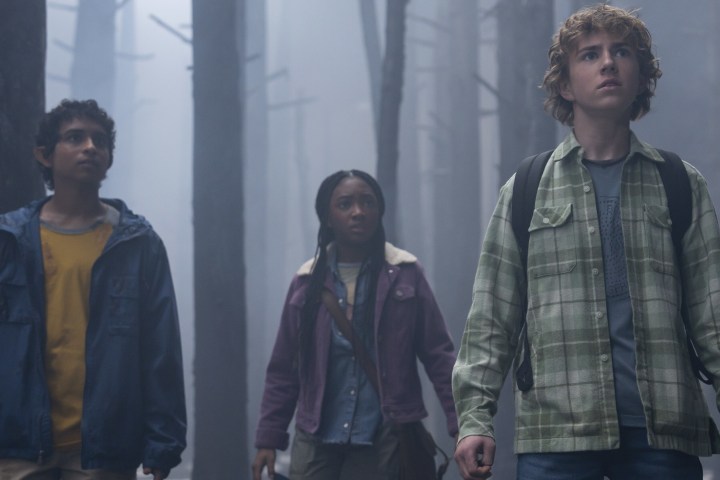
It isn’t until Percy Jackson and the Olympians’ third episode that its hero’s central quest begins. It also marks the moment when the series begins to feel increasingly propulsive and cohesive. Its first two installments are weighed down by the considerable number of exposition dumps that the creators are forced to fit in, which impact their pacing and prevent them from establishing a consistent sense of forward momentum. The series’ initially uneven pace is alleviated a bit by the immersive quality of its live-action version of Camp Half-Blood, which feels like it was ripped straight from the pages of Riordan’s The Lightning Thief, and the scene-stealing performances given by its supporting cast members. Kull, Simhadri, and Bushnell all stand out in their respective parts, as does Jason Mantzoukas, who plays Dionysus, the Greek god of wine and stern director of Camp Half-Blood.
Once Percy, Grover, and Annabeth have actually hit the road, Percy Jackson quickly begins to pick up, too. The series’ third installment, which sees the trio come up against Medusa (Jessica Parker Kennedy) in an encounter that is far scarier and more intense than its book counterpart, is a conflict-filled, patiently paced narrative detour. The relationships between Scobell’s Percy, Simhadri’s Grover, and Jeffries’ Annabeth are established and tested throughout the episode, and Scobell, in particular, shines. The more active Percy is allowed to be, the more comfortable Scobell seems to be in the role, which is partly why the series’ third and fourth installments are easily the best of its first four. They’re marred a bit by the same inconsistent VFX as the rest of Percy Jackson’s episodes, but they manage to combine action and on-the-move character development better than the show’s opening chapters.
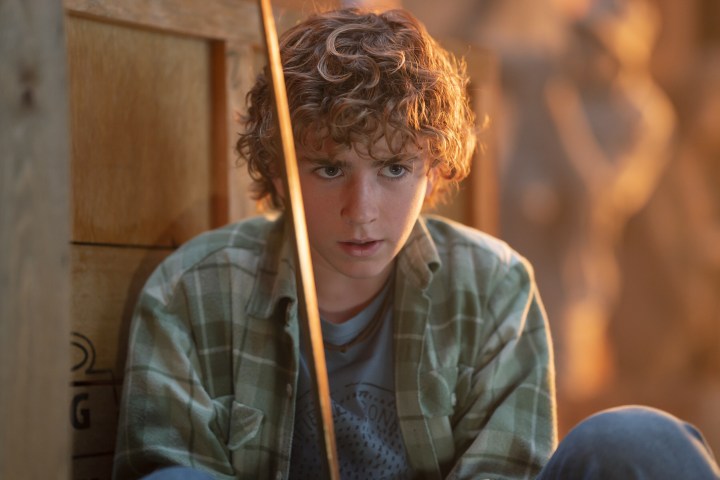
The explosive conclusion of the series’ fourth episode suggests that Percy Jackson and the Olympians’ first season is only going to continue to improve in its back half. That should come as welcome news to all the readers out there who have been waiting nearly 20 years for a faithful, entertaining adaptation of Riordan’s original books. The Disney+ series isn’t a home run smash hit per se, and the lack of initial chemistry between Scobell’s Percy and Jeffries’ Annabeth could be cause for concern further down the line.
To say that Percy Jackson gets off on the right foot, though, would be an understatement. The series fully embraces the adolescent spirit of its source material and emerges better for it, delivering an adaptation that has been a long time coming and yet still feels miraculous.
The first two episodes of Percy Jackson and the Olympians premiere Wednesday, December 20 on Disney+. New episodes debut weekly on Wednesdays. Digital Trends was given early access to the series’ first four episodes.
Editors’ Recommendations






